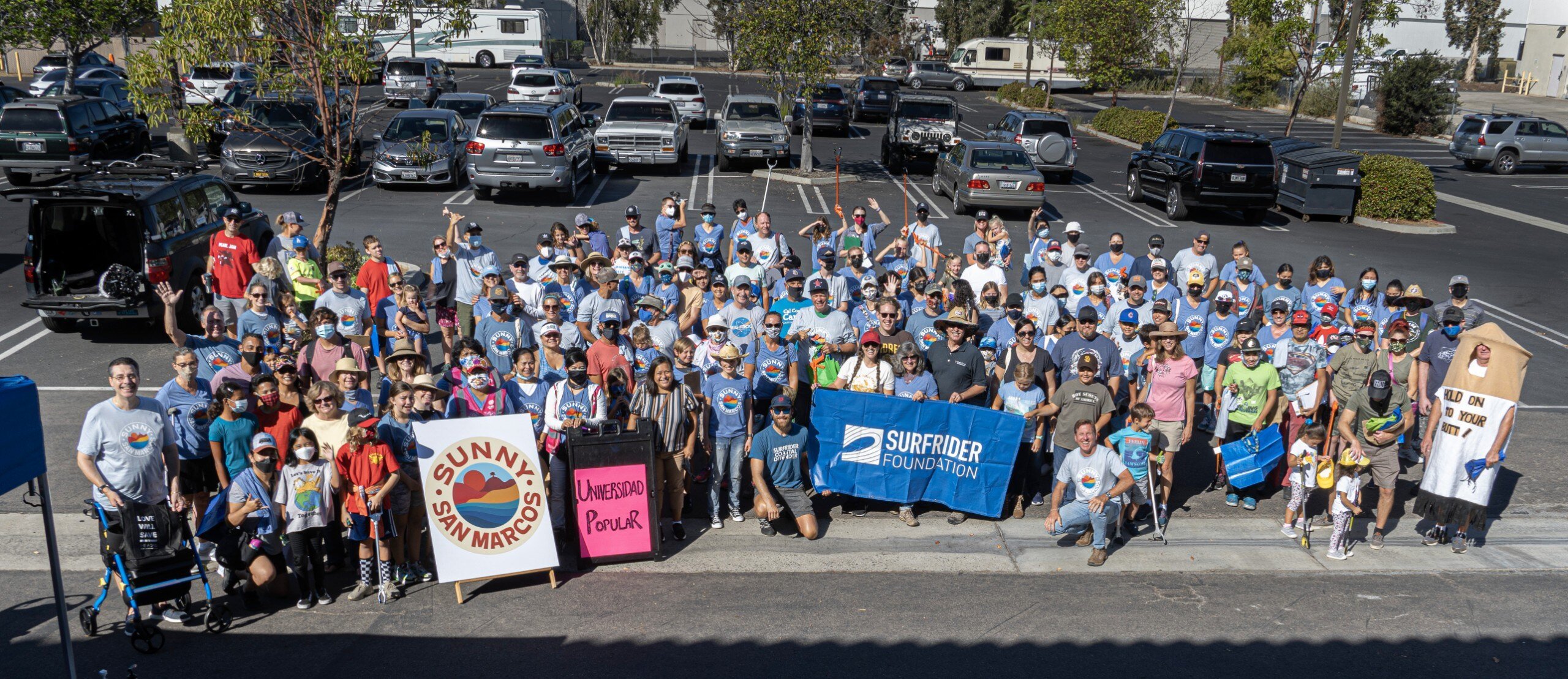In this section, we attempt to address the confusion around so-called compostable plastics, which we refer to as "bioplastics." As more cities regulate the use of single-use plastics, bioplastic replacements items that look and feel like conventional plastics are becoming more commonplace. But can they actually be composted?
Definitions
First, let’s broadly define the terms using definitions from Surfrider’s Bioplastics Toolkit. Generally, compostable means that a product will break down into its benign, natural components within an established timeframe in a specific, controlled environment.
Biodegradable means that a product will break down into its individual, natural components over time… but the exact conditions and timeframe are not specified. Technically, it could still take hundreds of years.
Because the definition of biodegradable is unspecific, it’s often misused and should not be included as a requirement in plastic laws. In fact, it’s illegal in California to label a product as biodegradable, degradable, decomposable, or any form of those terms for this reason.
State Laws, Local Laws, & Composting Standards
California law requires that products labeled as compostable adhere to ASTM D6400 and D6868 specification standards for commercial composting, and TUV Austria’s OK Compost Home standards for home composting.
However, this doesn’t mean that all ASTM-certified bioplastic (or other) products will be accepted in your curbside organics program. Similar to recycling, things get confusing because different cities contract with different companies to manage their curbside programs. We’ve found that some commercial composting facilities can properly compost bioplastic products, while others can only compost naturally occurring materials like food waste, paper, and/or fiber takeout containers.
Also similar to recycling, local plastic laws that require compostable alternatives define “compostable” as an item that can be composted in the city’s curbside organics recycling program, among other things. Regardless of whether your city has plastic laws that require compostable alternatives or not, the best way to find out if a so-called compostable plastic product is accepted in your curbside program is to contact your city environmental department or your waste hauler.
Example: Carlsbad requires single-use foodware and accessories to be compostable. Per their law, only items accepted in their curbside program qualify, and Carlsbad contracts with Republic Services for all of their curbside waste management. Therefore, the best place to seek answers would be Republic’s Carlsbad landing page and/or Carlsbad’s Environmental Sustainability Department.
Further Research
For a deeper dive into the complicated landscape of bioplastics, check out the Surfrider Bioplastics Toolkit.
Surfrider does not endorse the use of bioplastics as a sustainable alternative to conventional single-use plastics. We support reusables first and foremost, and if those are not an option, our next recommendation would be single-use items made from minimally processed, naturally occurring materials. Examples include recycled paper items, bamboo plates, wooden utensils, and straws made from paper, hay, pasta, or another naturally occurring material.




